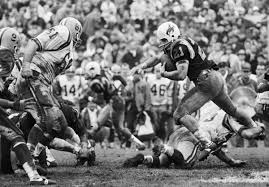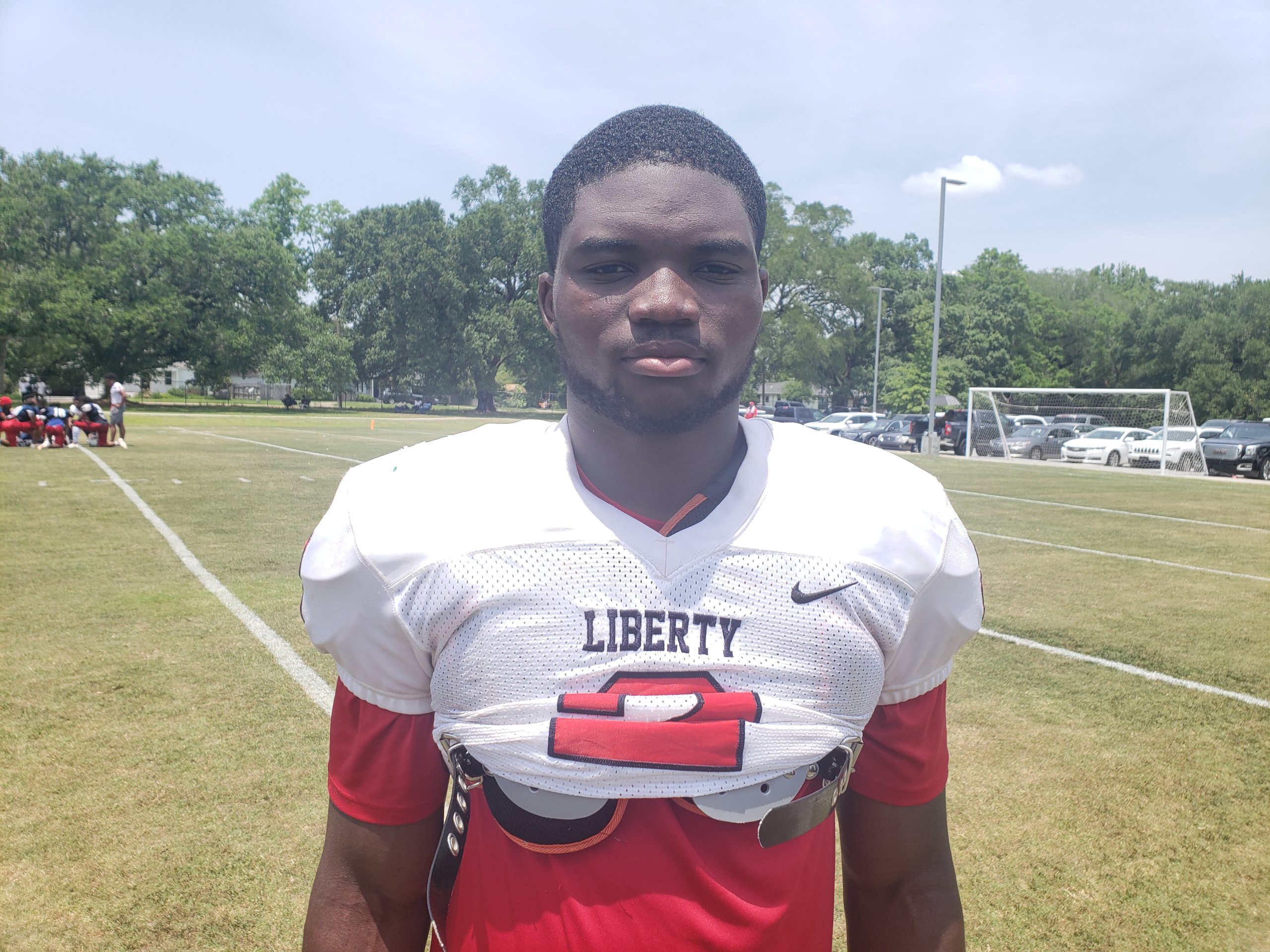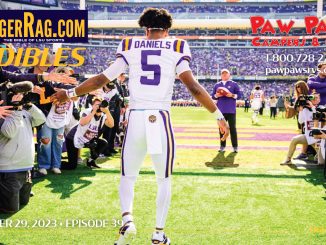
Charles McClendon directed LSU teams to post-season victories over undefeated teams vying for national honors three times in six years in the 1960s.
His Tigers whipped unbeaten Texas 13-0 in the 1963 Cotton Bowl, snapped a 22-game winning streak for Arkansas with a 14-7 victory in the 1966 Cotton Bowl and knocked off unbeaten Wyoming 20-13 in the 1968 Sugar Bowl.
Wyoming was the last surviving undefeated team in college football in 1967 when the Cowboys rolled into New Orleans to play a 6-3-1 LSU team that somehow finagled a major bowl bid.
The star player for the Cowboys was running back Jim Kiick, who would later team with Larry Csonka for the Miami Dolphins
to form a backfield duo known as “Butch Cassidy (Csonka) and the Sundance Kid (Kiick),” a tribute to the popular film at the time starring Robert Redford and Paul Newman.
Kiick and Csonka led the Dolphins to a perfect 17-0 season in 1972 when NFL rosters featured just 40 players. Eight players from a Miami team that played in three straight Super Bowls and won two in a row, have died of dementia-related illnesses. This represents an alarming 20 percent of the team coached by Don Shula, who died this year at 90, and defensive coordinator Bill Arnsparger, the LSU head coach from 1984-86, who died in 2015 at 88.
The latest victim from the team with the greatest season in NFL history was Kiick, who died at a Florida nursing home on June 20. He was 73.
Kiick was All-WAC three times at Wyoming. As a junior, he was the MVP of the 1966 Sun Bowl. He rushed for 135 yards as the 10-1 Cowboys beat Florida State 28-20. LSU held him to 75 yards a year later as the Bengals erased a 13-0 halftime deficit with three second half touchdowns as LSU tailback Glenn Smith, a New Orleans native, was named the game’s Most Outstanding Player.
When he arrived in South Florida to play with Dolphins as a fifth-round draft choice, current LSU broadcaster Doug Moreau was a teammate and starting tight end.
Kiick’s apartment was so filthy a few years ago, he was moved to an institution for the remainder of his days. A tragic turn for a fellow who was considered invincible. Kiick once played a game with a broken toe, broken finger, a hip pointer and badly bruised elbow.
James Forrest Kiick played professionally from 1968-77. On the day his career ended with the Denver Broncos, his house burned down and he got divorced. Kiick was a winner like few others in the game he coveted. Amid the triumphs, there were scars on his brain.
He is a reminder that sometimes what we love is also what kills us.
The Times They Are a-Changin’
In former Ole Miss quarterback Archie Manning’s last stand at Tiger Stadium, his Rebels were bombarded with a 35-point fourth quarter barrage from LSU as the Tigers prevailed 61-17 to deliver Charles McClendon his only SEC championship.
It was 50 years ago this Dec. 5 that LSU pummeled Manning, who was playing with his arm in a cast as an national television audience viewed Death Valley in prime time on Saturday night on ABC. LSU advanced to the Orange Bowl as oranges filled the sky of Tiger Stadium in a prelude to a similar night 12 years later when LSU scored its only win over Bobby Bowden. The 55-21 rout of Florida State earned another Orange Bowl trip that resulted in another narrow loss to mighty Nebraska.
The 1970 game was a showcase for LSU and SEC football with Tiger Stadium’s mystique and the fierce rivalry with Ole Miss on display before millions of fans in a pre-cable world. When Ole Miss fell behind 33-17, ABC announcer Bill Fleming cheerfully observed, “The Rebel is playing band is playing Dixie to fire up their Mississippi warriors.”
Dixie was an integral part of Ole Miss and Southern culture. This was a contest between two all-white teams who gave little if any thought to a song that was adopted as the national anthem of the Confederacy.
The tune was also featured at political rallies of President Abraham Lincoln and at the announcement of Robert E. Lee’s surrender. Dixie has been recorded by artists as diverse as Elvin Presley and Bob Dylan.
Ole Miss dropped Dixie from its band’s repertoire in 2016 after first presenting the song in 1948. That year, the Rebs pounded LSU 49-19 in Baton Rouge, but lost a chance at national honors with one defeat, a 20-7 setback to Tulane in New Orleans.
The year of 1948 was also when South Carolina Gov. Strom Thurmond ran as a Dixiecrat for president and won the states of Mississippi, Louisiana, Alabama and South Carolina as a third-party candidate.
Thurmond, who committed statutory rape when he fathered a black daughter at 22-years-old with a 16-year-old household servant, sought the White House on the back of one issue – segregation. His candidacy was announced after Minnesota’s Hubert Humphrey, a 1940 graduate of LSU, pushed civil rights into the platform of the Democratic Party.
Statements judged as abject racism today were commonplace in the American South when three-star General Troy Middleton pledged to keep LSU athletic teams all-white in 1961.
A letter written by the LSU president to his colleague in Texas was uncovered last year and resulted in the removal of Middleton’s name from the LSU Library last week. The action by the LSU Board of Supervisors was coupled with a crew arriving minutes later and booting from the Quadrangle the name of a flawed legend who guided LSU after a scandal which sent its president and a governor to jail.
The aesthetically challenged building was named in Middleton’s honor in 1978 when the LSU Board included a student body president named Jay Dardenne, Louisiana’s current commissioner of administration and a strong candidate to ascend to the current presidential vacancy of his alma mater.
A 1959 plaque remains at the library, noting that Robert F. Kennon was governor when the library opened, and Middleton was president of the university.
LSU will now review the wisdom of honoring Confederate warriors Kirby Smith and P.G.T. Beauregard and tainted administrators Thomas and David Boyd. The brothers who led the Ole War Skule at a formative time were Confederate sympathizers, yet the greatest honor for an LSU educator is be installed as a Boyd professor.
In 1953, LSU established the Boyd Professorship. There have been 77 professors honored this way in the 67 years since. It would be appropriate to rename the distinguished position in honor of William Tecumseh Sherman, the Union leader who in 1859 became LSU’s first president.




Be the first to comment